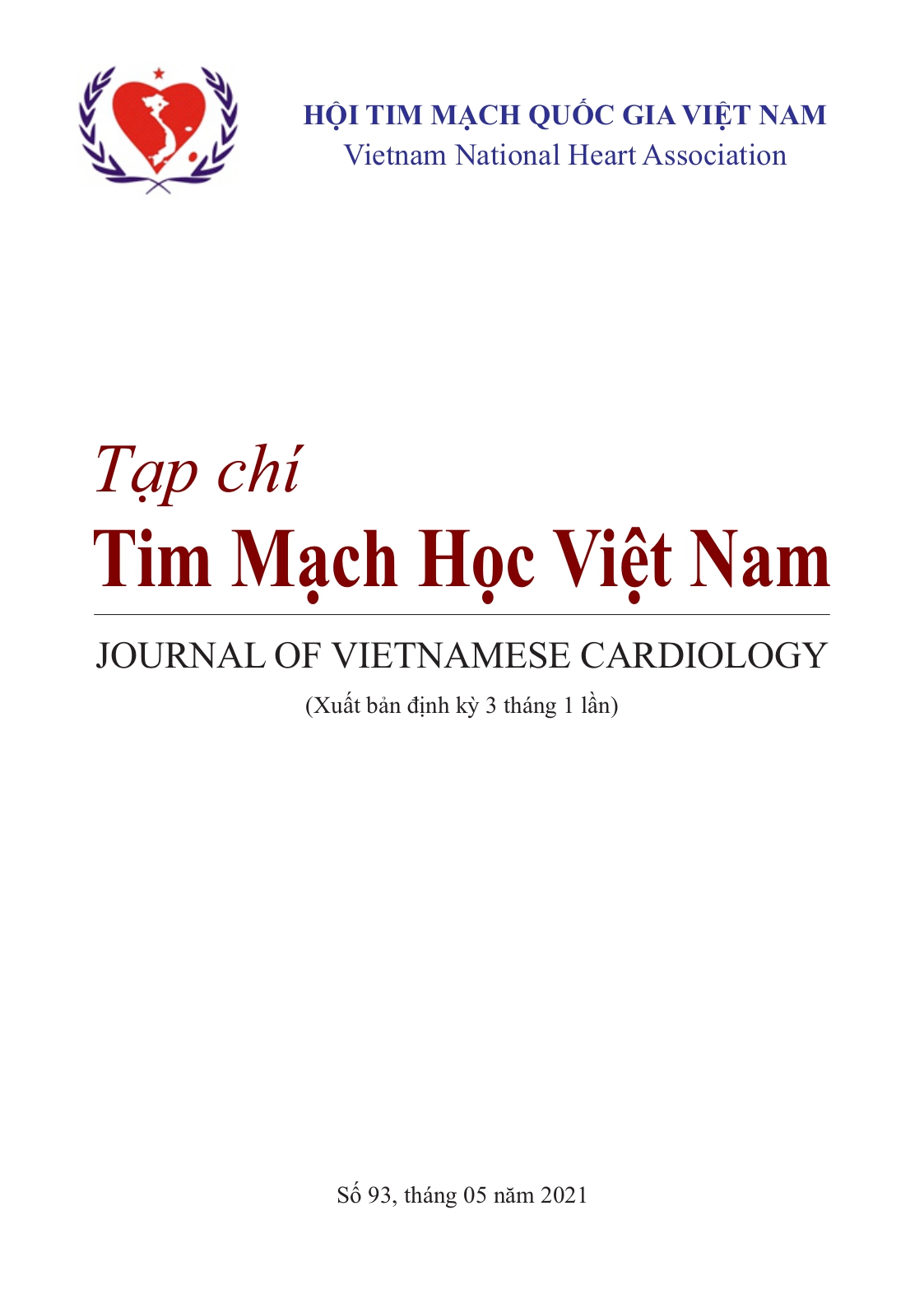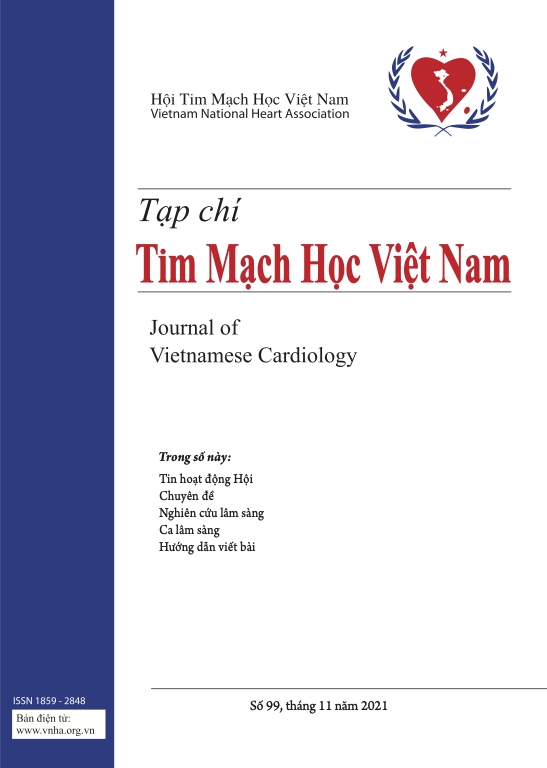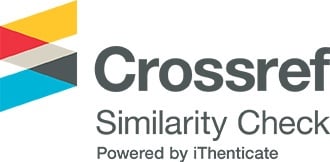Các bộ câu hỏi đánh giá tuân thủ điều trị ở bệnh nhân tim mạch
Tóm tắt
Hiện nay, kém tuân thủ điều trị là một trong những nguyên nhân quan trọng gây tăng tỷ lệ nhập viện và tử vong ở bệnh nhân tim mạch. Vì vậy, cần phải có những bộ câu hỏi đánh giá tuân thủ điều trị phù hợp và đáng tin cậy trên những bệnh nhân này. Hiện nay có nhiều bộ câu hỏi đánh giá tuân thủ điều trị được ứng dụng trên lâm sàng như MAQ, HBCS, SEAMS, ACDS, ASRQ… Qua bài tổng quan này, nhóm tác giả hướng đến cung cấp thông tin một cách hệ thống về một số bộ câu hỏi có ứng dụng rộng rãi trong đánh giá tuân thủ điều trị trên các bệnh nhân tim mạch như tăng huyết áp, bệnh mạch vành. Từ đó đánh giá về ưu, nhược điểm của các bộ câu hỏi này trong quản lý tuân thủ của bệnh nhân.
Từ khóa: Tuân thủ điều trị, bệnh lý tim mạch, bộ câu hỏi, độ tin cậy, Cronbach’a.
Tài liệu tham khảo
1. Su M.; Haldane V.; Upshur R., The Impact of Treatment Adherence for Patients With Diabetes and Hypertension on Cardiovascular Disease Risk: Protocol for a Retrospective Cohort Study, 2008-2018. JMIR Res Protoc. 2019 May 31;8(5):e13571
![]()
2. Mohammed Awais Hameed, MB, ChB1, 2 and Indranil Dasgupta, DM. Medication adherence and treatment-resistant hypertension: a review. Drugs Context. 2019; 8: 212560. Published online 2019 Feb 4.
![]()
3. Burnier M., Egan BM. Adherence in Hypertension. A Review of Prevalence, Risk Factors, Impact, and Management.
![]()
4. Burnier M. Monitoring of drug adherence in hypertension.
![]()
5. Kronish IM., MPH and Ye S., Adherence to Cardiovascular Medications: Lessons Learned and Future Directions. Prog Cardiovasc Dis. 2013; 55(6): 590–600.
![]()
6. Morisky DE, Green LW, Levine DM. Concurrent and predictive validity of a self-reported measure of medication adherence. Med Care. 1986 Jan; 24(1):67-74.
![]()
7. Kubica A, Kosobucka A, Michalski P et al. Self-reported questionnaires for assessment adherence to treatment in patients with cardiovascular diseases. Medical Research Journal 2017; 2(4):115-122.
![]()
8. Lam WY and Fresco P. Medication Adherence Measures: An Overview. Biomed Res Int. 2015; 2015: 217047.
![]()
9. Yan J, You LM, Yang Q et al. Translation and validation of a Chinese version of the 8-item Morisky medication adherence scale in myocardial infarction patients. J Eval Clin Pract. 2014 Aug;20(4):311-7.
![]()
10. Toll BA, McKee SA, Martin DJ. Factor structure and validity of the Medication Adherence Questionnaire (MAQ)withcigarettesmokerstryingtoquit. Nicotine Tob Res. 2007 May; 9(5): 597–605.
![]()
11. Marcum ZA, Zheng Y, Perera Setal. PrevalenceandCorrelatesof Self-Reported Medication NonAdherence among Older Adults with Coronary Heart Disease, Diabetes Mellitus, and/or Hypertension. Res Social Adm Pharm. 2013; 9(6).
![]()
12. http://timmachhoc.vn/su-tuan-tri-do-an-toan-do-dung-nap-va-hieu-qua-cua-vien-phoi-hop-lieu- co-dinh-peridopril-amlodipin-o-benh-nhan-hy-lap-co-tang-huyet-ap-va-benh-mach-vanh-on-dinh- mot-nghien-cuu-quan-sat-tien-cuu-tren-t/
http://timmachhoc.vn/su-tuan-tri-do-an-toan-do-dung-nap-va-hieu-qua-cua-vien-phoi-hop-lieu- co-dinh-peridopril-amlodipin-o-benh-nhan-hy-lap-co-tang-huyet-ap-va-benh-mach-vanh-on-dinh- mot-nghien-cuu-quan-sat-tien-cuu-tren-t/">
![]()
13. Mannapperuma U, Galappatthy P, Silva VA. ValidationoftheSinhalaversionoftheMoriskyMedicationAdherence Scale to determine medication adherence in patients with bipolar affective disorder on lithium therapy.
![]()
14. Donald E Morisky, M Robin DiMatteo. Improving the measurement of self-reported medication nonadherence: Response to Authors. Journal of clinical epidemiology 64(3):255-7.
![]()
15. Risser J, Jacobson TA, Kripalani S. Development and Psychometric Evaluation of the Self-Efficacy for Appropriate Medication Use Scale (SEAMS) in Low-Literacy Patients With Chronic Disease. Journal of Nursing Measurement, Volume 15, Number 3, 2007.
![]()
16. Naqvi A. A., Hassali M. A., Rizvi M. et al. (2018), “Development and validation of a novel General Medication Adherence Scale (GMAS) for chronic illness patients in Pakistan”, Frontiers in pharmacology. 9, 1124.
![]()
17. Naqvi A. A., Hassali M. A., Jahangir A. et al. (2019), “Translation and validation of the English version of the general medication adherence scale (GMAS) in patients with chronic illnesses”, Journal of Drug Assessment. 8 (1), 36-42.
![]()
18. Naqvi A. A., Al-Shayban D. M., Ghori S. A. et al. (2019), “Validation of the General Medication Adherence Scale (GMAS) in Saudi patients with chronic disease”, Frontiers in pharmacology. 10, 633.
![]()
19. Thang Nguyen, Thao H Nguyen, Suol T Pham, et al. Translation and Cross-Cultural Adaptation of the Brief Illness Perception Questionnaire, the Beliefs About Medicines Questionnaire and the Morisky Medication Adherence Scale Into Vietnamese.
![]()
Tải xuống
Đã Xuất bản
Các phiên bản
- 05-03-2023 (2)
- 05-03-2023 (1)








